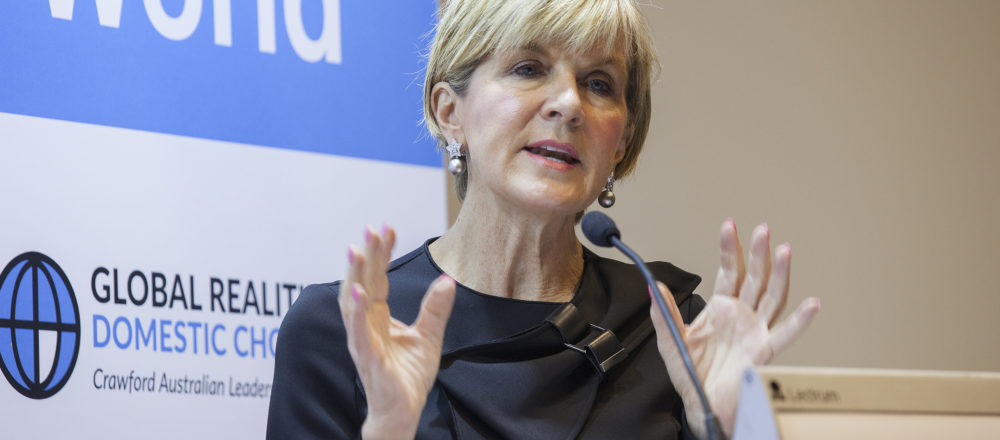An Australian Modern Slavery Act (MSA), modelled on UK legislation introduced in 2015, looks set to go ahead, with two key publications released in August of this year. This article discusses proposals in the Interim report of the Joint Standing Committee (Committee) on Foreign Affairs, Defence and Trade’s inquiry into establishing a Modern Slavery Act in Australia and the government’s Public Consultation Paper and Regulation Impact Statement.
What is meant by ‘modern slavery’?
The Committee’s interim report defines modern slavery as ‘a broad umbrella term used to describe a number of crimes, including, but not limited to, human trafficking, forced labour, sexual slavery, child labour and trafficking, domestic servitude, forced marriage, bonded labour including debt bondage, slavery and other slavery-like practices’.
Despite widespread acknowledgment of the need to address these issues, there has been some criticism of the use of the term ‘modern slavery’, including the fact that it lacks a legal definition. Nonetheless, there is broad support for the introduction of an Australian MSA that places reporting obligations on businesses regarding modern slavery in their businesses and supply chains and there is significant momentum around tackling modern slavery internationally and within Australia. The International Labour Organization (ILO) has identified that the Asia Pacific region has a high incidence of modern slavery, so an examination of supply chains in this region is critical.
A growing trend
The UK MSA places a legal obligation on companies with a turnover of £36 million or more to produce a statement that is then made publicly available on their website. The MSA recommends that the statement address: the company’s structure and supply chains; relevant policies and due diligence processes; identification of risks and steps to manage them; effectiveness of preventative measures; and training for staff. Some Australian businesses with operations in the UK, such as Qantas and Wesfarmers, are already required to report under the UK legislation.
As well as the UK MSA, human rights related reporting obligations for businesses have been introduced in a number of jurisdictions in recent years. These include a European Union Directive and laws in California, France, and the Netherlands. This forms part of a growing trend towards ‘business and human rights’, whereby human rights protection is no longer seen as the sole responsibility of states.
Australia’s MSA could be an improvement on UK MSA
In Australia, the Committee commenced an inquiry into an Australian MSA in February this year and in August it published its interim report. The report recommends the development of a MSA, including mandatory supply chain reporting requirements by way of statements, and the establishment of an Independent Anti-Slavery Commissioner. Many of the details of the proposed legislation remain to be finalised but in their current state, the proposals are quite far-reaching and have the potential to improve on the UK legislation in the following ways.
- The Committee recommends extending reporting obligations to government procurement thus widening the potential reach of the MSA.
- A legislated and government funded repository containing modern slavery statements from companies is also recommended. The lack of a central repository was felt to be a weakness of the UK legislation, although one is now managed by an NGO in the UK (Business and Human Rights Resource Centre).
- The Committee supports penalties for those who do not report or do not report in compliance with the MSA (but not penalties for those who find modern slavery and are taking action on it). There are no immediate penalties for non-compliance in the UK MSA, a factor sometimes linked to the reportedly low compliance rate in the UK. Originally under the French laws, judges could apply fines of up to €10 million on companies which fail to publish statements (‘plans’ under the French law), increasing to €30 million if the failure resulted in preventable damages. However, a recent decision of the Constitutional Council struck down this part of the French law, so that fines are no longer included.
- The final way in which the Australian MSA might go beyond the provisions of the UK MSA is in publishing lists of companies which do / do not comply with their reporting obligations. A similar initiative was undertaken in Brazil which has a ‘dirty list’ of companies using forced labour.
Australia’s MSA could be far reaching
The interim report recommends that the MSA be consistent with international jurisdictions and with Australia’s obligations under international law. Slavery and related crimes breach customary international law and provisions in several legally binding United Nations (UN) human rights treaties and ILO Conventions.
For the past few years, a UN working group has been discussing the development of a specific treaty on business and human rights. There are also voluntary international obligations relevant to modern slavery, including the UN Global Compact (UNGC), the UN guiding principles on business and human rights, and the OECD guidelines for multinational enterprises. In June 2017, Foreign Minister Julie Bishop established an Australian advisory group on the implementation of the UN guiding principles.
The final report of the Committee will include other potentially far-reaching considerations, such as: due diligence requirements, prevention measures, support for victims, improvements to Australia’s visa regime, foreign aid, prevention of orphanage tourism, and regulation of imports of goods. The final report is also expected to recommend a reporting threshold for companies covered by the Australian MSA. Under the UK MSA, companies with a total turnover of £36 million or more are required to report – it is estimated that this affects over 12,000 companies. The threshold for the Californian Act is $100 million, affecting 2,126 companies, and the threshold for the French legislation is based on a number of employees, rather than turnover, and affects only an estimated 150 companies.
But… one step forward, two steps back?
The Committee’s current proposals for the Australian MSA and the other options being considered all sound quite positive from a human rights perspective. Except, the day before the Committee published its interim report, the Australian government published a ‘Public Consultation Paper and Regulation Impact Statement’ on ‘proposed modern slavery in supply chains reporting’, with no specific reference to the Committee’s proposals. The proposals in the government’s brief document are much less far reaching than those of the Committee. For example, it does not propose to extend the reporting requirement to government procurement, does not include penalties for non-compliance, and has proposed that only businesses with a turnover of at least $100 million would be required to report. The relatively weak alternative proposal put forward by the government has drawn criticism from Human Rights Watch and it is hoped that consultations will influence the content of the Australian MSA.
What’s next?
The final report of the Committee is expected in December and the government has announced that it will hold consultations until December, with legislation expected to be introduced to Parliament in the first half of 2018. Information on progress of the consultations can be found here.
Correction: This article has been edited to clarify that there are no longer fines available under the French MSA as a penalty for non-compliance, due to a recent decision of the Constitutional Council.



